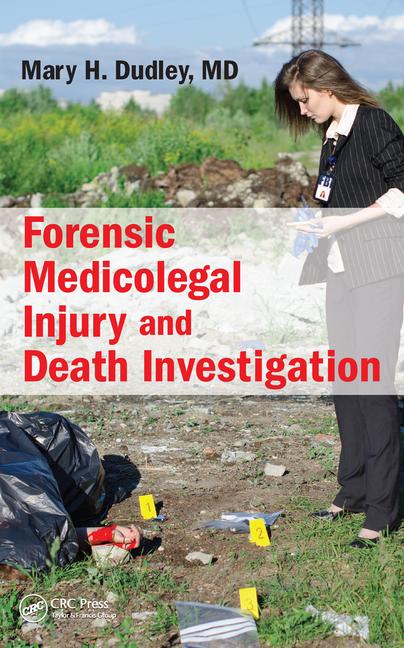 The role of the medicolegal death investigator is to investigate any death that falls under the jurisdiction of the medical examiner or coroner, including all suspicious, violent, unexplained and unexpected deaths.
The role of the medicolegal death investigator is to investigate any death that falls under the jurisdiction of the medical examiner or coroner, including all suspicious, violent, unexplained and unexpected deaths.
A death investigation is a process whereby a coroner or forensic pathologist seeks to understand how and why a person died. A coroner or forensic pathologist must answer five questions when investigating a death:
- Who (identity of the deceased)
- When (date of death)
- Where (location of death)
- How (medical cause of death)
- By what means (natural causes, accident, homicide, suicide or undetermined)
Information may be obtained from several sources including, but not limited to family, co-workers, neighbors, doctors, hospital records, police and other emergency service workers. Contact with family is vital as they often have important information that can aid the investigation.
In This Episode – Medicolegal Death Investigations
In this episode I talk with Dr Mary Dudley about the field of Medicolegal Death Investigations and where the field is progressing. We discuss some ‘best practices’ and obstacles faced by medicolegal death investigators across the country, as well as what new and up coming investigators need to do to have a better chance of entering the field.

Mary H. Dudley, MD, is the chief medical examiner (retired 2015) for Jackson County in Kansas City, MO. She is board certified in Anatomic and Forensic Pathology by the American Board of Pathology. She completed a two-year fellowship in Forensic Pathology at the University of New Mexico following a four-year Anatomic and Clinical Pathology residency at Penrose Hospital in Colorado Springs. She has a diploma, BS, and MS in nursing and also founded the first forensic nursing certificate program in the United States in 1994. Dr. Dudley originated the first Forensic Medical Investigation course in the United States in 1996.
Dr. Dudley is a Board Member of the National Association of Medical Examiners, Fellow of the American Academy of Forensic Science, co-chair of the Medical Examiner Advisory Board of Musculotissue Foundation, member of the Missouri Child Fatality Review Board, and member of the National Disaster Medical Systems (Disaster Mortuary Operations Response Team). She is also an Associate Professor of Clinical Pathology – University of Missouri-Kansas City and on the teaching faculty at the University of Colorado-Colorado Springs and Metropolitan Community College-Penn Valley Campus in Kansas City, Missouri, USA.

 Click Image to learn more or to purchase
Click Image to learn more or to purchase
Features
- Includes an extensive section on injury recognition covering blunt, sharp, and patterned injury, forensic odontology, gunshot wounds, and craniocerebral injury
- Covers all the essential aspects relating to death investigations as well as investigations involving abuse and injury
- Illustrates concepts with graphic images throughout
Summary
Introducing the basic concepts of clinical forensic medicine and death investigation, this book covers the main areas of forensic investigation . It provides an introduction to forensic science and coverage of injury patterns, natural disease, accidental trauma, child injury and fatalities, and domestic violence. Anyone who has direct contact with death, crime, and the medicolegal system, including nurses, physicians, attorneys, death investigators, forensic pathologists, and police detectives, will find this an invaluable reference.

coroner,police training, darren dake,sheriff,deputy,coroner association,murder scenes,auto fatalities,csi,first responders,autoerotic fatalities,become a coroner,forensic science crime scene investigation,forensic science crime,scene investigator,forensic training,forensics training,how to be a crime scene investigator,how to become a death investigator,how to become a medical examiner,how to become a medical examiner investigator,medical examiner investigator training,medical investigator training,medicolegal death,medicolegal death investigator training,murder scenes,pictures of murder scenes,murder,real murder crime scenes,traffic deaths,traffic fatalities,what does it take to be a coroner,what does it take to be a criminal investigator,firefighter,fire training,firefighter training,autoerotic fatalities,become a coroner,coroner information,crime scene clean up training,crime scene cleaning training,crime scene cleanup training,crime scene investigation,crime scene investigation classes,crime scene investigator courses,crime scene investigator school,crime scene jobs,crime scene photography,crime scene photography training,crime scene technician,crime scene technician training,crime scene training,criminal investigation,criminal investigator,criminal justice,criminal justice forensic science,criminal justice forensics,criminal scene investigation,death crime scenes,death investigation training,death investigator training,death investigators,forensic death investigator,forensic investigator,forensic photography, crime scene clean up,crime scene bio-hazard, using plants in criminal investigation,forensic botany,dr.jane bock,death investigator magazine,dr judy melinek,badge of life,american college of forensic examiners,acfei,american board of medicolegal death investigators,abmdi,matthew lunn,underwater crime scene,mike berry,online learning,lopa,cultural diversity,anger de-escalation
3 comments on “Medicolegal Death Investigations – Dr. Mary Dudley”
Leave a Reply
You must be logged in to post a comment.

Enjoyed the talk about deaths in nursing home especially. Some nursing homes don’t want to the coroner there when there is a death. I don’t have a problem here in my county but some do. Also in MS, after a coroner is elected, they must complete the 40 hour course before they can be sworn into office. Same for deputy coroners. See you in June!
Darren and Dr. Dudley: I cannot disagree about the need for ME office accreditation (NAME) and Investigator accreditation (ABMDI). These accreditations are great, but they only apply if an office complies, or if it is in a budget.
Dr. Dudley nailed my long-time complaint…that ABMDI cert becomes an OTJ type of accreditation. No school to teach, and the ABMDI courses are the bare minimum. But a new hire doesn’t need this, nor can they get the certification, UNTIL they are hired. That means an investigator may be green, unless they are hired as a lateral move. That means new, aspiring MDIs are out of luck, unless they are a known entity, often from an internal hire in a jurisdiction.
The training topic is near and dear to my heart, since I find it appalling that there are no curricula that lead to MDI certification, there are no set standards across the board for education and qualifications. The need for standards in forensic procedures demand a better qualified Investigator, not best gained as OTJ.
Texas has a strange ME/Justice of the Peace system that, to me, is a very weak net of qualifications over the whole state. I find it crazy that the person in the counties outside of the 11 counties in Texas that have an ME office to sign the Death Certificate, make determinations on whether to order an autopsy according to Texas law, and to do investigations, is the Justice of the Peace. The JP is an elected position which does not require a law degree or any medical training. That is INSANE!!!!!!! The take home message is do not die in a small Texas county.
The mixed systems in different states leave things rife with lack of standards. As stated by Dr. Dudley, states that have DAs/Prosecuting Attorneys acting as death investigator and coroner, the conflict of interest really rises to the top. Oregon has a State ME , but the small counties are investigated (to what level, I do not know) by DAs. Wow!!
Thank you for the topics, and I hope something comes to pass that new MDIs can get into the business, not based on their chummy personality in the LE office, or a buddy of the coroner. We need qualified, TRAINED individuals (who can access the training before being hired). I vote for coursework that can get people qualified and considered.
I should clarify, and you might already know this – there are no MLDIs in the 252 counties not covered by an ME office in Texas. Yes, these small counties may have a contract with a large ME covered county to do autopsies, but there is no contact for investigations. The investigations get done by LE, maybe EMS, or the JPs. Nothing mandates or compels any of them to have taken ABMDI accredited training, though they may have – it is not the norm. WOW, again.